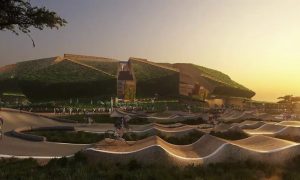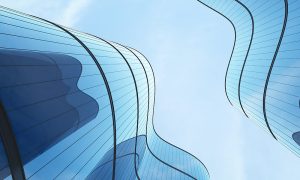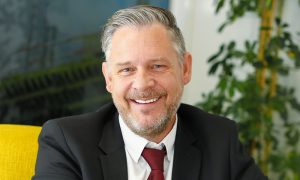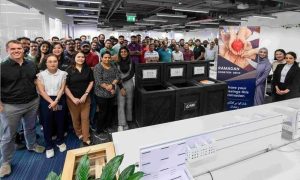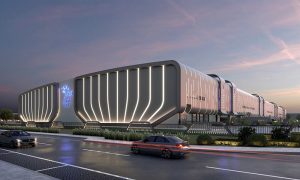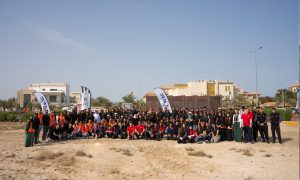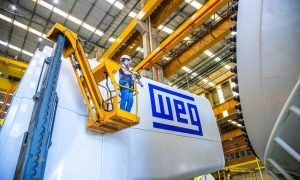Draw Link Group’s Daousser Chennoufi on his design philosophy
The architect and designer believes minimalism and flexibility hold the key to success in an increasingly competitive world
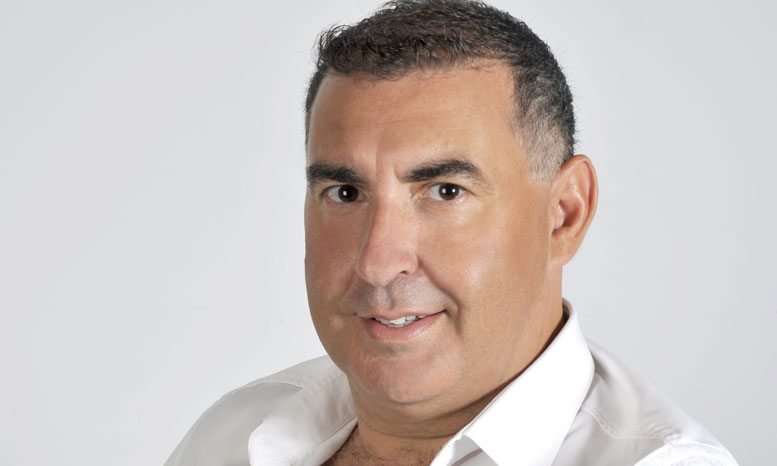
Daousser Chennoufi combines showmanship and style. The award-winning founder, CEO and key architect of the now decade-old Dubai-based Draw Link Group (DLG), an architectural and design firm, is the mastermind behind several innovative design concepts.
A minimalist to the core, Chennoufi instantly goes for the jugular in an exclusive interview with Middle East Consultant. “I do not dabble with complexities or the inane. My design philosophy, simply put, is to keep things simple and make less to get more. I marry art and professionalism in my work, and I always remind myself that an architect is also an artist at heart,” he says.
“An architect also needs to be a realistic and pragmatic, and develop practical solutions for problems encountered.” For example, one of the first factors to be considered when developing the design and architectural plan for a building structure is the extreme heat in the region.
Due to this factor, Chennoufi puts forth designs where light is adequately let in and radiates across the canopies. Heat is always countered by cooling mechanisms such as air conditioning. Also, his preference is for ‘cooler’ furniture and materials – leather seating, for example, material that does not conduct heat. “Another peculiarity of the Middle East region is the amount of sunlight all year round. We therefore design with the aim to let in as much sunlight as possible into our buildings, while selecting the light fittings for the evening time in order to create the right ambience.”
Hardly any profession or industry anywhere in the world is free from competition, and therefore challenges abound. “The Middle East, as with the rest of the world, is getting increasingly competitive. The all-pervading global recession is definitely taking its toll too, and that implies we have to do things differently, we need to be smart and be rational.”
He thus carefully researches design concepts and gets more innovative and creative to present something novel to the market. He believes that the UAE and GCC countries in general were previously considerably influenced by big international brands appearing in the market and local, indigenous brands were few and far between or discouraged.
That scenario is now changing, and local and regional brands are coming to the fore. This is especially true in the hospitality and restaurant sectors, where well-established home-spun brands are expanding regionally and even globally, making their mark in new geographies.
Flexing flexibility
Chennoufi opines that the flexibility of dining venues, easily converted into a lounge or even a club, is now trending. This can be attained through a modular design of the seating areas. “This new trend is most likely influenced by the desire to make F&B venues more social, more relaxed and more welcoming.” He adds that the concept of developing modular patterns – a building of grids or blocks – offers options, versatility and importantly resilience, and has also proven cost-effective.
He also infuses technology into his designs, especially in high-end residential projects where the client would like to personalise his or her private space to the maximum possible extent. He cites connected homes, increasingly popular with clients seeking complete control over the space through iPads and hand-held devices.
He understands this drive possibly comes from the innovative and effervescent nature of Dubai itself, among the fastest growing cities in the world, providing its residents and visitors with the newest, most extraordinary experiences and gadgetry. “In order to keep up with the standards that Dubai sets and the competitive environment, our design concepts need to be arrived at thoughtfully, examined and tweaked every time,” he remarks.
No matter how impressive or futuristic something may look, there must be an added economic value or business purpose behind it. It is also true that the benefit of the innovation may also be social: the ability to somehow improve people’s life or make any task easier should not be undermined.
So while there are a lot of high-tech products in the marketplace nowadays, they can only be described as innovative when they are fully functional, he contends. “To be innovative is to be functional and obtain value for money for every development, because clients are now cost-conscious, thrifty and seek good returns.”
Coping with constraints
Chennoufi is clearly mindful of monetary pressures and admits that one of the greatest challenges at the moment is budget constraints, due to the current unstable situation in the world.
“We need not only to survive in a tough environment but also thrive, so we need to be resourceful, imaginative and inventive to be able to deliver money’s worth for our clientele. Anyone who would like to pursue a career in architecture or design or open a firm that offers these professional services must firstly have a passion for what he or she is doing, passion to learn new things, to travel, to never stop exploring and therefore surround themselves with design in every part of life. When design becomes your lifestyle, there should not be boundaries to your creativity.
“It goes without saying that you need to give your best in what you are doing and to balance a lot of skills by being not only a good designer, but a good manager, businessman or even artist. Looking at my own experience, I have never been scared to start projects bigger than my capabilities were at that time. It always seems impossible until it is done, but once it is done, you grow to a new level and set an even larger goal,” he further counsels.
BIOGRAPHY
With its growing success in the UAE and expanding international portfolio, DLG’s interests include architecture, interiors, projects and technical works divisions. The company is behind projects such as the InterContinental Hotel Dubai Marina, Hues Boutique Hotel, Radisson Royal Hotel, Roberto’s Restaurant, among many others.
Apart from being the CEO of DLG, Chennoufi is also the concept creator and partner of HUES Hotels and Resorts, Dubai and responsible for the design and concept development of the hotels and resort properties group. DLG has offices in the UAE, Qatar, Tunisia, China and Belarus.
Chennoufi has been recognised by Bloomberg, CNBC, the governments of his native Tunisia and Mauritania, and professional bodies including the Chicago-based International Interior Design Association (IIDA) and Cityscapes.
He holds a Master’s degree in Architecture from the National School of Architecture and Urbanism (ENAU) in Tunis, and is the mastermind behind award-winning design concepts. He is also the founder and backbone of the Draw Link Group. With its growing success in Dubai and growing international portfolio, he is emerging as a fresh, influential voice in the UAE design industry.

